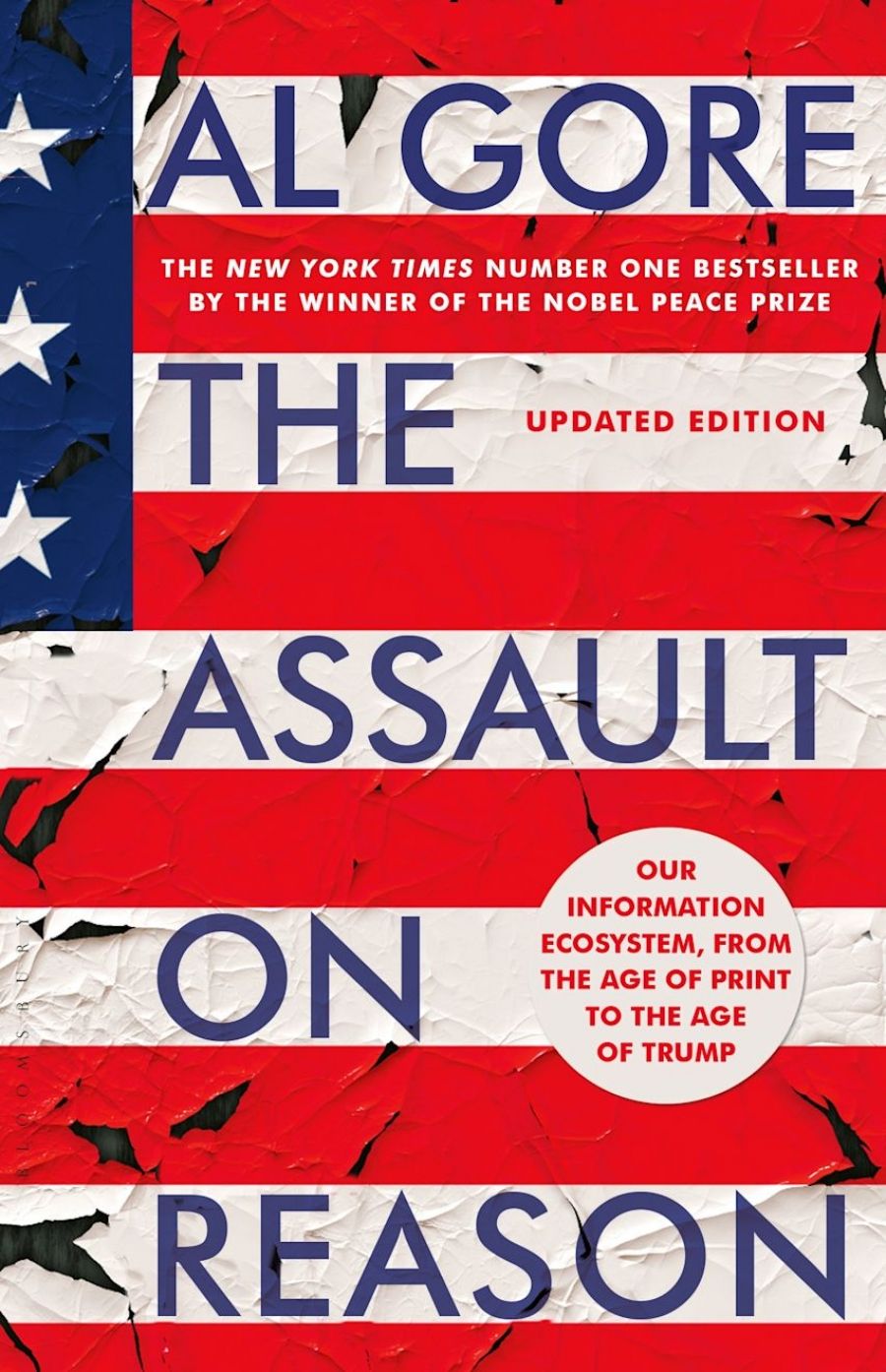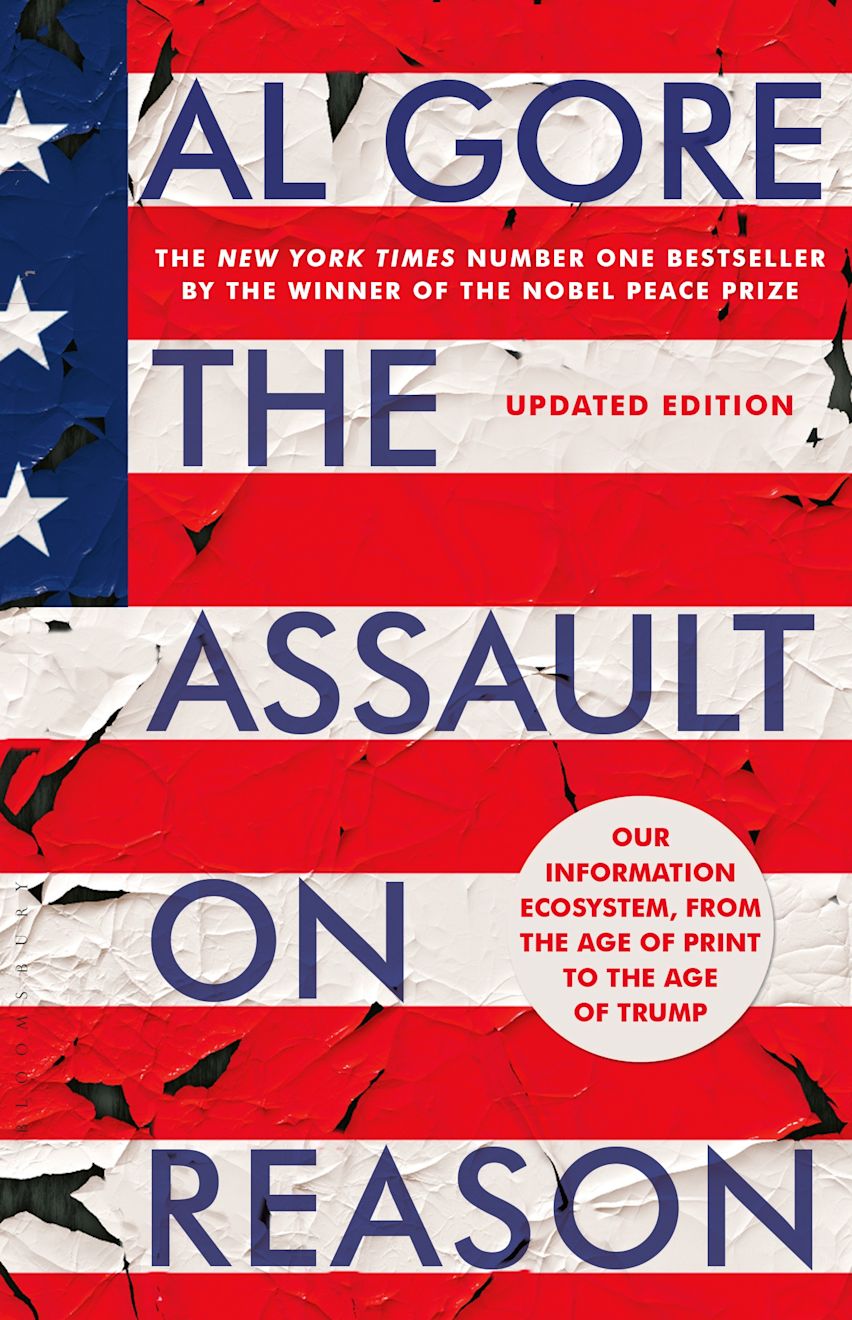
- Free Article: No
- Contents Category: Politics
- Review Article: Yes
- Online Only: No
- Custom Highlight Text:
When the United States invaded Iraq, it invaded a country that posed no immediate threat to it. It did so at a time when the issue about weapons of mass destruction was in the process of being resolved by the United Nations’ investigations. It invaded a country that was not a major locus of al Qaeda activity (not then) and had played no role in 9/11. The invasion diverted America’s attention and resources from groups that were responsible for 9/11, undermined its moral authority in the international community and handed terrorists a propaganda weapon. True, a tyrant was deposed, but in a way that will breed more tyrants in the future. It is little wonder that so many commentators across the political spectrum have labelled the invasion America’s worst foreign policy decision.
- Book 1 Title: The Assault on Reason
- Book 1 Biblio: Bloomsbury, $32.95pb, 308pp
- Book 1 Cover Small (400 x 600):

- Book 1 Cover (800 x 1200):

Looking back, the pressing question is why, in a great democracy with a tradition of free speech, vigorous public debate and some of the best newspapers and universities in the world, there was not more opposition to the decision to invade – a question some Democrats are now finding very embarrassing. You might point to the 20-20 vision of hindsight, but many at the time predicted pretty much what has in fact ensued. To give just one example: Phillip Adams, writing in the Australian before the war, listed what he thought would happen if America invaded Iraq. Just about everything he predicted has come to pass. Adams is smart, but he is not a foreign policy expert. If he could get it right, how come President Bush and his inner circle couldn’t? Moreover, as Al Gore notes in The Assault on Reason, America had been there before – in Vietnam. Gore details how senior figures in the Pentagon, having learnt the lesson of Vietnam, sought to ensure that nothing like it would happen in the future. They failed.
In his book, Gore has attempted to answer our question. Well, it’s not quite that simple. He has written a book about the marked decline in the quality of public discussion of the issues that confront us all, and in the United States in particular, including, unsurprisingly, climate change. But the driving force behind the book is the Iraq disaster. What we get is a publication from an intellectual magpie, with a distinctively American flavour. Gore quotes from university research across the biological, physical and social sciences. He quotes from the United States constitution, the writings of early presidents and the ‘Founding Fathers’. He is frank about his religious convictions in a way unusual in policy commentators in the United Kingdom or Australia.
Gore offers his readers some of the usual suspects. He mentions television, with its drive for ratings and advertisers subverting detailed discussion, especially detailed discussion of unpalatable truths. Who got a ratings boost out of telling people that we messed up badly, or that things are worse than we might have hoped, or that we will have to make some hard choices? Gore reminds us of the role of money in American politics. Politicians everywhere need money to get elected. In the United States, they need unusually large amounts. This means that the members of Congress are very far from representative of the American public, tending to be considerably wealthier. They also depend on, and spend a lot of time with, their wealthy backers. Outsiders are sometimes puzzled by how friendly American tax arrangements are to the wealthy. There is really no puzzle. Observers from outside America are sometimes puzzled by the insensitivity of so many American legislators to the problems faced by the poor – such as a curious lack of empathy. Again, there’s really no mystery here.
One topic that Gore doesn’t touch on is the fact that voting is not compulsory in the United States. This is one reason though not the only reason, why the turn out in American elections is low (34.2 per cent in the 2002 Representatives poll, 55.5 per cent in the 2004 presidential election). It is likely that American politicians would be more responsive to the needs of all members of their electorates if more of them voted.
Gore details the control exercised by the Bush administration over the flow of information in the period leading up to the Iraq war, the control that largely escaped the attention of the attention of the New York Times (which later apologised to its readers); the control that led many in the United States and elsewhere to believe that there were weapons of mass destruction in Iraq and, most extraordinarily, that waiting for verification was not necessary before committing to war; the control that allowed a decision that would inevitably lead to the death of large numbers of innocent people, for no sufficient return, to pass muster with the American public.
It is here that Gore misses an opportunity. He provides elaborate detail about the control of information (and the wilful ignoring, inside the administration, of information that suggested that invasion would be a serious error) and the way the administration used fear and name-calling to subvert rational discussion. But he does not explain the ‘atmosphere’ of so much of the political debate in the United States, and that is a significant part of the story. For there were many expert commentators writing in leading papers and magazines, and international relations specialists working in major universities, making the argument that invading Iraq would be a grave mistake. But in the United States, the newspapers and magazines we regard as the best informed, along with the major universities, are regarded by many as suspect sources of information and opinion. They are ‘liberal’ (remember the way that Michael Dukakis’s having been to Harvard was used against him when he ran against George Bush Sr). ln some circles in the United States, the fact that a view has the backing of certain newspapers or academics in one of America’s great universities is justification for ignoring the case offered in support of the view. We see something of this in Australia when some conservative commentators refuse to discuss an issue on its merits, instead using words and phrases like ‘élite’, ‘doctors’ wives’ and ‘ABC’, as if labelling (or, in some cases, mislabelling) a source was a response to an argument. This is much more entrenched in the United States.
Gore notes the phenomenon – and deplores it – but doesn’t really explain it. It is an assault on reason, to borrow his term. It would have been good to hear from an American insider about how the phenomenon became so insidious in America, and what sustains it. Gore quotes Thomas Jefferson’s ‘An informed citizenry is the only true repository of the public will’, and a recurring theme in the book is the importance of publicly available information. But this is of limited value if much of your public is primed to turn its back on the best sources of that information.


Comments powered by CComment